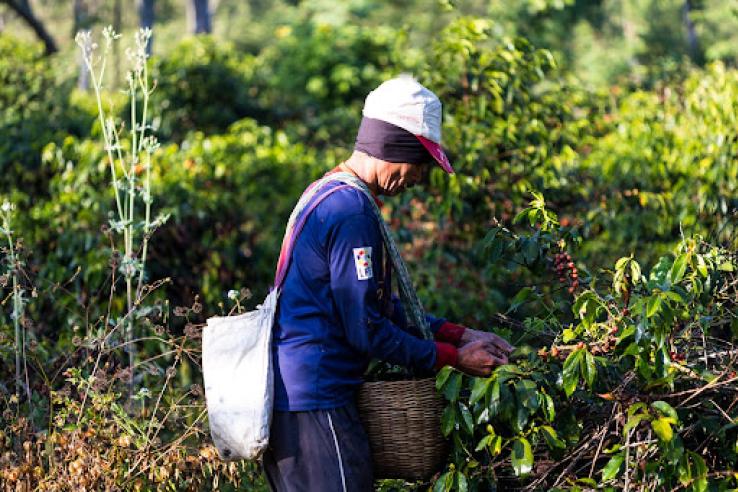J-PAL Southeast Asia at 10: Agriculture

The Impact of Information Provision on Farmer Decision-Making in Indonesia: In Bali, Indonesia, J-PAL affiliated researchers Rema Hanna (Harvard) and Sendhil Mullainathan (University of Chicago) and their coauthor Joshua Schwartzstein (Harvard) conducted a randomized evaluation with seaweed farmers to observe the impact of participating in a program that determined optimal seaweed production methods and receiving summarized results of the program on the adoption of optimal farming inputs. Findings suggest the program did not change key input choices in the production of seaweed. Instead, farmers changed their practices only after they were presented with summaries of results from the program.*
The Impact of Coffee Certification on the Livelihoods of Coffee Farmers: Former J-PAL affiliated researcher Russell Toth (University of Sydney) and his coauthors Jeffrey Neilson (University of Sydney) and Bustanul Arifin (Universitas Lampung) conducted a randomized evaluation to study the impact of Rainforest Alliance certification (SAN/RA) on the livelihood of farmers with a 4C certification (The Common Code for the Coffee Community). Results show the program led to overall income improvements and poverty reductions through various channels, including farm and labor practices and prices, in conjunction with increased hours worked on- and off-farm.
The Impact of Cocoa Certification on the Livelihoods of Farmers: Former J-PAL affiliated researcher Russell Toth (University of Sydney) and his coauthors Jeffrey Neilson (University of Sydney) and Bustanul Arifin (Universitas Lampung) conducted a randomized evaluation with cocoa farmers to assess whether joining a sustainability and livelihood program, gaining access to markets, and having sustainability certification would have an impact on their livelihoods. The randomized evaluation results are forthcoming.
*Not Implemented by J-PAL SEA (i.e., either implemented independently by researchers, partner organizations, or by Innovations for Poverty Action Philippines).